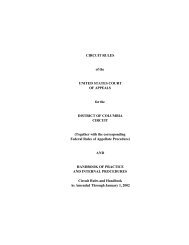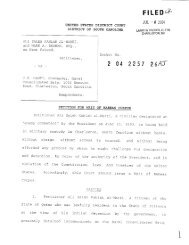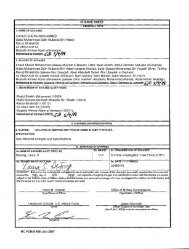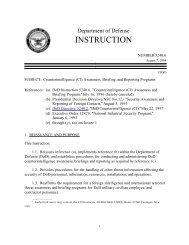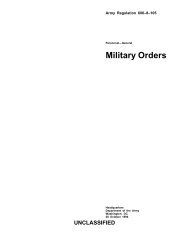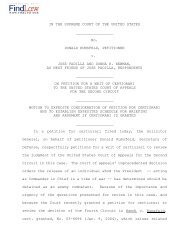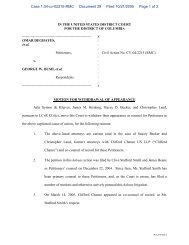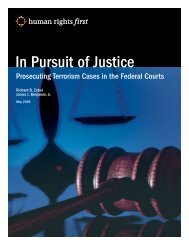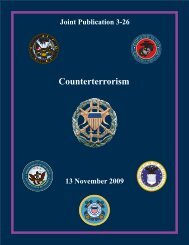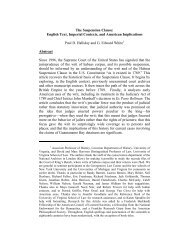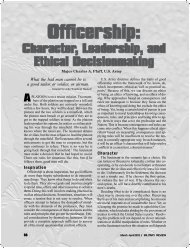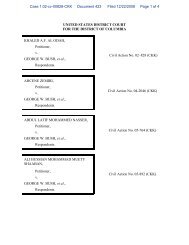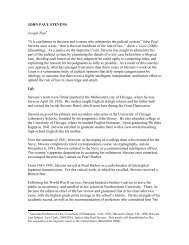Government Merits Brief - Hamdan v. Rumsfeld
Government Merits Brief - Hamdan v. Rumsfeld
Government Merits Brief - Hamdan v. Rumsfeld
Create successful ePaper yourself
Turn your PDF publications into a flip-book with our unique Google optimized e-Paper software.
29<br />
particular reference to the facts”: namely, that the defendant<br />
in Milligan, as a person who was not “a part of or associated<br />
with the armed forces of the enemy,” was a “non-belligerent.”<br />
317 U.S. at 45. And in Hamdi, a majority of this Court rejected<br />
a far more plausible invocation of Milligan, by an<br />
American citizen, and reaffirmed Quirin. See 542 U.S. at 523<br />
(plurality opinion) (“Quirin was a unanimous opinion. It both<br />
postdates and clarifies Milligan, providing us with the most<br />
apposite precedent that we have.”); id. at 593 (Thomas, J.,<br />
dissenting) (“Quirin overruled Milligan to the extent that<br />
those cases are inconsistent.”). 6<br />
Petitioner contends that he should be considered a nonbelligerent<br />
like the defendant in Milligan, rather than an<br />
enemy combatant like the defendants in Quirin, because he<br />
contests his combatant status. But the Hamdi plurality refused<br />
to limit Quirin to cases in which enemy-combatant status<br />
was conceded, noting that the AUMF authorizes the<br />
United States to detain even citizen enemy combatants captured<br />
in a foreign combat zone and concluding that “whether<br />
[enemy-combatant status] is established by concession or by<br />
some other process that verifies this fact with sufficient certainty<br />
seems beside the point.” 542 U.S. at 523. Petitioner is<br />
an alien enemy combatant captured abroad. Because a CSRT<br />
found that petitioner had the status of an enemy combatant<br />
(as either a member or an affiliate of al Qaeda), see Pet. App.<br />
2a, 31a, petitioner squarely falls within the four corners of the<br />
6<br />
Petitioner seeks (Br. 26 n.17) to distinguish Quirin on the ground that two<br />
of the four charges (Counts 2 and 3) were statutorily authorized to be tried by<br />
military commission. But Quirin upheld the commission’s authority to try the<br />
individuals based solely on the common-law-of-war charge (Count 1). Indeed,<br />
Quirin noted that, through Article 15 of the Articles of War, Congress had<br />
recognized the military’s ability to enforce common-law rules of warfare which<br />
Congress had chosen not to codify in detail. 317 U.S. at 30.



